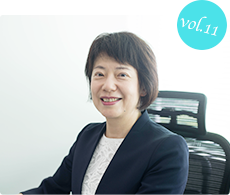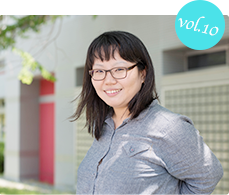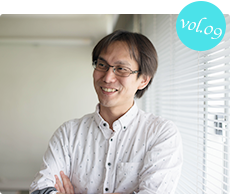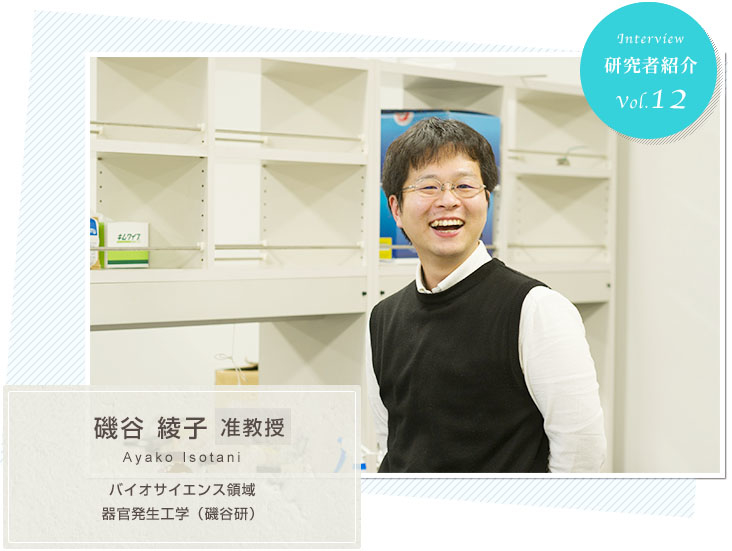
![]()
D. (Pharmaceutical Sciences), Graduate School of Pharmaceutical Sciences, Osaka University After serving as an assistant professor and specially appointed associate professor at the same university, joined the university as an associate professor in August 2016. Areas of expertise are laboratory animal science and developmental engineering. Focuses on creating organs for transplantation in interspecies chimeric animal bodies, manipulating fertilized eggs to create various animal models.
Path to becoming a researcher
When I was a kid, I wanted to be a cartoonist. Around 1989, I read Osamu Tezuka's manga "The Firebird" and had a strong impression of human cloning. I remember being fascinated by the idea that it was possible to create many exactly the same organisms, and I thought that I would like to do such research. Later, when I became a high school student and was deciding on a career path, I decided that I was interested in science and wanted to become a researcher in the future. At that time, due to family circumstances, the only science-related course I could pursue was pharmacy, so I enrolled in the Faculty of Pharmaceutical Sciences. I was also very shocked by the appearance of Dolly the cloned sheep in 1997, which was reported just before I entered university. As an undergraduate, I was fortunate enough to be part of a laboratory that researched in vitro fertilization using germ cells as a basis for the development of cloning technology. In my master's program, I wanted to work on research using developmental engineering technology for cloning, so I entered the graduate school of Osaka University. There, I was given chimeras as a research topic and became involved in embryological engineering research. I was a Ph.D. student, an assistant professor, and an associate professor with a special appointment at Osaka University before assuming my current position at the university.
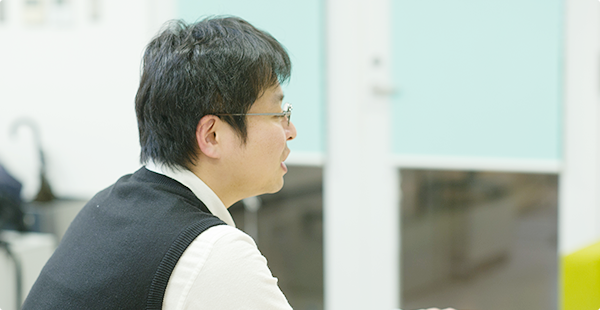
The research environment at NAIST is very good. The general equipment to start a new research project is available, and the administrative staff is very supportive and wonderful. Of course, there are some stresses, such as securing research funding, but I have not experienced any inconvenience in conducting my research, which is more than I expected.
Daily schedule
I arrive at the university at 8:30 a.m. and leave at 8:00 p.m. From 8:30 a.m. to about 10:00 a.m., I work on emails and paperwork, and then I spend about three hours in the cell culture room or animal facility. In the afternoon, I spend a couple of hours talking to students, and then a couple of hours doing emails, paperwork, gathering information from papers, and experiments.
Experiments to create genetically modified animals are a combination of different techniques, and each process requires a specific technique that takes a considerable amount of time to master. I am in the process of reaffirming each of the techniques while teaching students the movements that have been ingrained in me through nearly 20 years of research. But only students who show enthusiasm learn the techniques.
I try not to come to the university on Saturdays and Sundays, but if I have cell culture or hormone administration in mice, I usually come for a few hours anyway. I also have several hobbies.
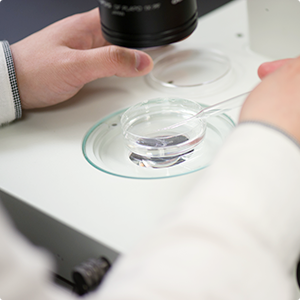
To students who want to become researchers in the future
The main motivation for me to continue my research is "something exciting". I am also working on applied research, but I believe that research is first about the surprise of discovery and then about applied research. I think researchers enjoy that surprise.
You might think that research is about making and testing hypotheses, but I have always been excited by the thought of "it might be interesting if this kind of future became a reality. So I'm always thinking about the unexpected. Sometimes I get an adrenaline rush thinking about what would happen if this were possible. Next, I formulate a hypothesis about how to make it happen. Then I think about what the world would be like if it were realized, and how it would be useful and spread.
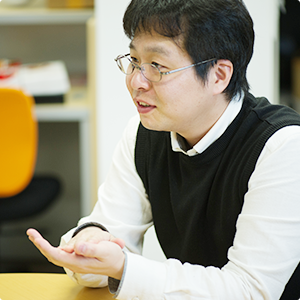
Recently, I feel that the nature of graduate school is changing because companies are looking for people with master's degrees as their needs. Research is to delve deeply into a subject, but once you start working, there is no need for what you were doing. But research can teach you what steps to take to get to the bottom of something. I think those steps will always be necessary, whether you go to work for a company or stay in academia.
Current situation and challenges for researchers raising children
Several researchers I know are doing research while raising children, but not in so-called full-time positions. I think there are people who want to have a full-time position but cannot, but at the same time, I think the current situation is that they refrain from applying for a full-time position because of the responsibilities that come with it. All of you may find it difficult to choose such an environment, because if you have a lab, you will be under pressure not only at home, but also at work. It is easier to work when you have your own time 24 hours a day, as I do
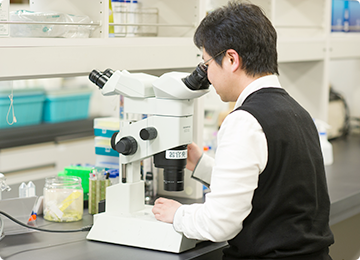
I think that the university provides excellent support for work-life balance. I think that the national government should take action on these issues through government policies, but I think that the university's "Ikubosu" statement and other measures to support work-life balance should be more appealing so that they can reach those who are worried about their jobs.
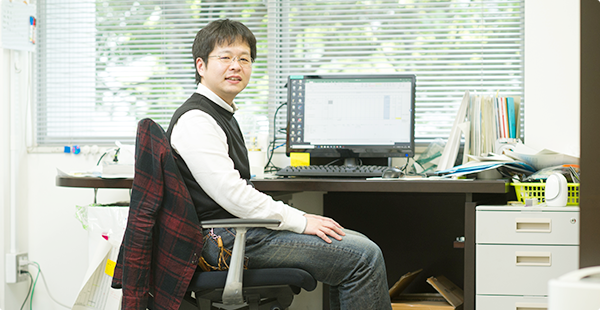
(June, 2018)

-
2017.6 updated
Division of Biological Science
-
2017.6 updated
Division of Information Science
-
2017.6 updated
Division of Biological Science






